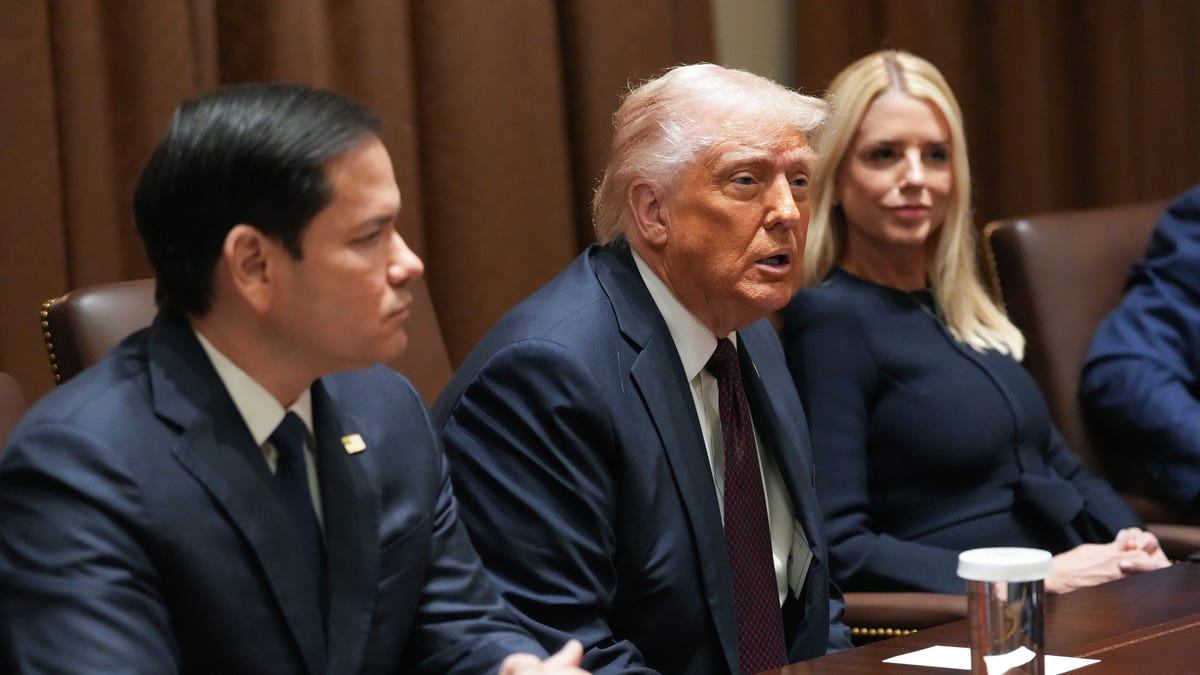What to know about the Alien Enemies Act of 1798
President Trump wants to invoke the Alien Enemies Act of 1798. Here’s what you need to know about the wartime law.
WASHINGTON – Three members of President Donald Trump’s Cabinet have invoked the state-secrets privilege in refusing to provide more information a judge demanded about deportation flights of hundreds of Venezuelans under the Alien Enemies Act.
Chief U.S. District Judge James Boasberg had tried to block deportation flights on March 15 but two appeared to take off between his verbal and written orders. As he weighs whether the administration defied him, Boasberg ordered the release of information about how many people were on the flights, when they took off, when they left U.S. airspace and where they landed.
But Attorney General Pam Bondi, Secretary of State Marco Rubio and Kristi Noem, secretary of the Department of Homeland Security each said in court filings late Monday that the information was too sensitive to release because of national security and foreign relations. Trump has declared the Venezuelan crime gang Tren de Aragua a foreign terrorist organization and ordered the removal of its alleged members.
“The is a case about the President’s plenary authority…to remove from the homeland designated terrorists participating in a state-sponsored invasion, and predatory incursion into, the United States,” Bondi said in a filing. “The Court has all of the facts it needs to address the compliance issues before it.”
Trump, Boasberg personify clash between executive, judicial branches
The case represents one of the most direct clashes between the executive and judicial branches as Trump sets policies and judges evaluate whether they comply with the law. Trump and his aides have said they would obey court orders, but they are appealing adverse rulings they expect to eventually win on appeal.
“Further intrusions on the Executive Branch would present dangerous and wholly unwarranted separation-of-powers harms with respect to diplomatic and national security concerns that the Court lacks competence to address,” Bondi said in a filing.
Boasberg reiterated his block on deportation flights under the Alien Enemies Act until the alleged members of Tren de Aragua are given a chance to deny their membership in the gang, as several have done through court filings.
“As the Government itself concedes, the awesome power granted by the Act may be brought to bear only on those who are, in fact, ‘alien enemies.'” Boasberg wrote. “And the Supreme Court and this Circuit have long maintained that federal courts are equipped to adjudicate that question when individuals threatened with detention and removal challenge their designation as such.”
Trump called for the impeachment of Boasberg and other judges that have ruled against the administration. But the impeachment talk sparked a rare rebuke from Supreme Court Chief Justice John Roberts, who said the recourse for adverse decisions is to appeal them.
Government lawyers said they could file another argument Tuesday about why they haven’t violated Boasberg’s orders. The lawyers have previously said Boasberg’s verbal order was unenforceable and no flights took off after his written order.
Trump is also appealing Boasberg’s order temporarily blocking the flights. The D.C. Circuit Court of Appeals held a fiery hearing Monday.
Cabinet members say revealing deportation info would hurt national security
Despite the silence of U.S. officials, El Salvador’s President Nayib Bukele said on social media his country received 238 alleged members of Tren de Aragua on March 15 and 23 alleged members of MS-13. But women aboard the flights who were returned to the U.S. said in sworn statements that Salvadorans refused to accept deportees from other Central American countries such as Nicaragua or women detainees.
Rubio said in a statement release of the information “could reasonably be expected to cause significant harm to the foreign relations interests of the United States and, relatedly, the national security interests of the United States.”
Noem said disclosing information about the removal flights such as locations of departures and flight paths could endanger U.S. officials, contractors, immigrants and the public.
Confirming information about the deportations of Tren de Aragua members could help “help such groups avoid capture” and “directly undermine the efficacy of American counterterrorism operations,” Noem said.
